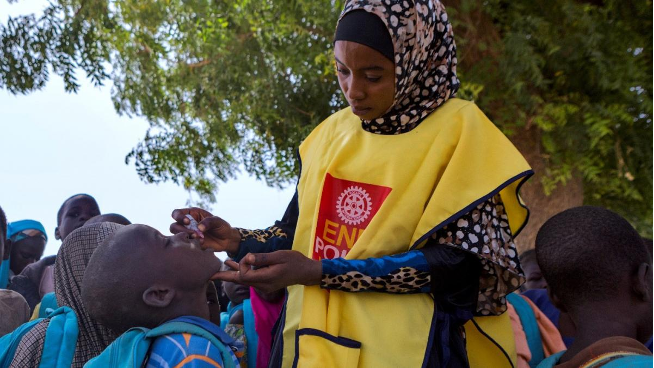
The impact of polio infection is, as with most things in this world, incredibly complex. Decades after a person is infected with polio, they can face a variety of debilitating symptoms collectively referred to as the “late effects of polio” or “post-polio syndrome”. Post-polio syndrome (PPS) is a malady that is much less well known than polio itself, so let’s delve into this a bit more this month.
Post-polio syndrome is a weakening of the muscles that were originally impacted by polio. It is estimated to impact between 25% and 40% of polio survivors1. The National Institutes of Health2 identifies the most common symptoms of PPS as:
- “slowly progressive muscle weakness
- fatigue (both general and muscular)
- decrease in muscle size (muscular atrophy)
- loss of muscle function
- pain from joint deterioration and increasing skeletal deformities such as curvature of the spine (scoliosis)”
PPS is not life threatening, nor is it contagious, but it can very significantly impact a person’s ability to function independently. The cause of PPS stems from the damage caused by the original polio infection.
Motor neurons are specialized nerve cells that transmit information from the nervous system to muscles, organs, or glands. Polio infection damages specific motor neurons in the brain stem and spinal cord that transmit nerve impulses to muscles, causing them to contract and function. Those nerve cells that survive often generate new additional offshoots to the associated muscle cells and, via that growth process along with exercise, a polio survivor may regain muscle function. After years of overwork by these relatively new nerve/muscle connections, they become damaged through overuse and lead to muscle weakness and the other symptoms described above.3 This is post-polio syndrome.
We can see that even once a person has navigated the original impacts to their health from polio infection, they can, many years later, suffer even further from this disease. Once polio is eradicated from the earth, there will still be polio survivors who will see the effects years later. The time is now to continue to push forward and rid the globe of polio once and for all.
How Can I Help Eradicate Polio?
Rotarians can donate to End Polio Now online at: https://www.endpolio.org/donate
Every dollar donated through End Polio Now will be matched by two dollars from the Bill and Melinda Gates foundation, tripling your financial impact!
Notable Person Stricken With Polio: Arthur C. Clarke; Author and Screenwriter. Most famous for penning “2001: A Space Odyssey”. Died from respiratory complications of post-polio syndrome on March 19, 2008. Contracted polio in 1962 at age 45.4
References:

https://my-cms.rotary.org/sites/default/files/styles/rotary_responsive_760/public/20170227_NG_017.jpg?itok=D59y4qyf
